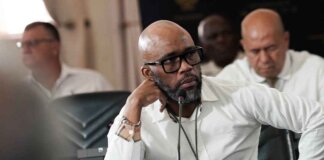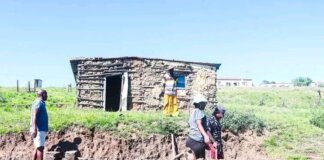Billions of rands that could be used to build schools, stock rural clinics, or repair crumbling roads are quietly leaving African countries every year, legally and in plain sight. That’s the part that hurts the most.
This isn’t a faraway problem affecting only big cities and corporate boardrooms. It’s a local community problem too. It’s about whether, for example, clinics in Lusikisiki will get medicine, whether bridges will be repaired and whether children in rural schools will have proper classrooms and toilets. It’s about whether our taxes work for us, or whether we keep shouldering the burden while those with power find ways to escape it.
This week, as leaders, civil society, experts and researchers gathered at the 13th Pan-African Conference (PAC) on Illicit Financial Flows (IFFs) and Taxation, held from 7 to 10 October 2025 in Johannesburg, South Africa, under the theme, “Honouring a Legacy, building a Future”.
This year’s conference, organised by Tax Justice Network Africa (TJNA) and partners, takes place at a pivotal moment for the continent. As African countries grapple with rising debt, constrained fiscal space, and growing development demands, the urgency to mobilise domestic resources has never been greater.
The message was clear during the panel discussion: Africa can no longer afford to let corporations and elites exploit tax loopholes. At the same time, the majority are left with underfunded services.
This year’s conference also marked ten years since the landmark 2015 High-Level Panel Report on Illicit Financial Flows, led by former president Thabo Mbeki. The report revealed that Africa was losing over US$50 billion annually to practices such as trade mispricing, tax evasion, and profit shifting, far more than what the continent receives in aid.
“When the High-Level Panel submitted its report in 2015, we sought to make visible what had for too long been hidden: the massive haemorrhaging of Africa’s resources,” Mbeki told delegates. “We showed that illicit financial flows were not an abstract problem, but a real drain on Africa’s capacity to finance its own development.”
A decade later, the problem hasn’t gone away. If anything, it has become more urgent. African countries face rising debt, shrinking fiscal space, and increasing demands from their citizens for better services. The revenue we lose through illicit financial flows is revenue we could be investing in rural development, not patching potholes with gravel or asking rural nurses to work without basic supplies.
Why This Matters
As Chenai Mukumba, Executive Director of Tax Justice Network Africa, explained during the conference, “Some of the areas where we need the most development are in rural areas. But when resources flow out of the country through illicit financial flows, those are resources that could have been directed where we most need them, hospitals, schools, clinics.”
This isn’t theory. When big corporations and elites avoid taxes, governments don’t stop collecting. They shift the burden through higher VAT, levies on electricity and airtime, or by squeezing the informal sector. That means ordinary working people and small businesses end up carrying the load.
For families in Pondoland, it means less money for food and transport, while potholes remain unrepaired and clinics stay understaffed. It results in overcrowded classrooms and underfunded municipalities. And it keeps us trapped in a cycle where we are told “there’s no money,” when in reality the money exists, just not here.

The Tricks That Cost Us Billions
One of the most common tricks companies use is trade mispricing. A big multinational may overstate the cost of goods it imports from its own branch in another country or understate the price of exports, all to shift profits offshore, away from tax collectors.
“It’s time to make that illegal,” said Raymond Baker, a veteran campaigner against illicit financial flows. His call resonated because, for too long, corporations have operated in the grey zone, exploiting weak rules without technically breaking them.
If these transactions were properly taxed, the billions recovered could change the lives of rural communities. That’s why the fight against illicit financial flows is ultimately about justice, tax justice.
The conference also saw the launch of a new Policy Tracker — a simple but powerful tool developed by African tax bodies and civil society to help governments close the holes in their tax systems. It works like a traffic light:
- Green means strong systems,
- Yellow means partial progress,
- Red means major gaps.
Countries like Namibia and Ghana have already piloted it. One Namibian official described the experience as “holding up a mirror” to see exactly where the leaks are.
This is the kind of tool South Africa needs too, to plug the holes before we demand more sacrifices from ordinary people. It’s about fixing the system, not punishing the poor.
Africa Takes Its Seat at the Table
Beyond domestic reforms, Africa is also stepping onto the global tax stage. For the first time, through negotiations at the United Nations, African countries will have an equal voice in rewriting the rules of international taxation by 2027.
For decades, global tax rules were shaped by rich countries, allowing multinational companies to benefit from tax havens while poorer nations bore the cost. Now, African states are uniting to demand a fairer system, one that prioritises development, not corporate convenience.
“This process is historic,” said Mary Baine, Executive Secretary, African Tax Administration Forum. “For the first time, every country has an equal seat at the table. If Africa speaks with one voice, we can shape a fairer system. If we are divided, others will write the rules for us.”
Why This Fight Is Personal
When people hear about “billions lost,” it can sound distant. But here’s what a fraction of that money could mean in a place like Pondoland:
- A repaired bridge that no longer cuts off villages during heavy rains.
- More nurses at the clinic and enough medicines for chronic patients.
- A new library or science lab at a rural school.
- Reliable water infrastructure for farming communities.
This is what is stolen when corporations exploit tax loopholes. It is our money, and our communities pay the price.
From Conference Halls to Community Halls
One of the most striking points raised at the conference came from journalists and activists: tax justice debates must leave hotel conference rooms and enter community halls.
Civil society groups are already hosting local dialogues and youth workshops in several countries to help people understand how tax dodging affects their daily lives. This must happen here too. When communities understand how their money is being spent, they can demand better accountability from corporations, municipalities, and the national government.
Knowledge is power. And tax justice isn’t just for economists. It’s for the nurse whose clinic is out of medicine. The teacher with 70 children in one class. The farmer whose gravel road never gets fixed.
Africa stands at a crossroads. The next few years will shape whether the wealth of this continent continues to enrich others or whether it starts to serve its own people. Laws are being drafted. Global tax rules are being negotiated.
If rural communities remain silent, others will write the rules for us, and they won’t be in our favour. But if we make our voices heard and demand that those with the most pay their fair share, then the story can change.
This is not just about economics. It’s about justice, dignity, and fairness. Tax justice is about whether our children will inherit schools that work, roads that connect, and hospitals that heal or the same broken promises we’ve lived with.








